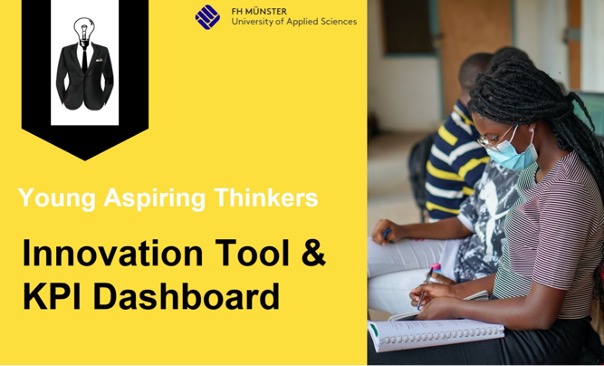
12 January 2022 | Münster
As part of a S2BMRC project, bachelor's and master's students from the Münster School of Business at the FH Münster University of Applied Sciences developed various tools to help the NGO from South Africa and its learners.
The project was conducted as a Science-to-Society Semester Project led by Jun.-Prof. Dr. Kerstin Kurzhals and Katrin Uude from the Science-to-Business Marketing Research Centre. Both are working in the research line Science-to-Society that carries out a pro bono project every semester in cooperation with an NGO, foundation, etc., to contribute to social development and get students interested in socially relevant topics.
YAT (Young Aspiring Thinkers) is an NGO that helps students (called YAT learners) in South Africa learn about different career options and follow their chosen career paths. Learners spend four years in various programs and not only learn about different professions but also learn a lot about their own skills and preferences and how to develop them.
Students from FH Münster University of Applied Sciences developed a so-called KPI (key performance indicators) Dashboard to enable the learners to track their development process during these four years. The board includes various questions about the different objectives of the programs that learners answer at different times.

By answering the questions, learners can see their development and evaluate which areas they are already well-positioned in and what they still need to work on. In addition, the data generated by answering the questions may be used by YAT to review and improve the effectiveness of its programs.
In addition to the KPI dashboard, students also developed a social innovation tool that YAT learners can use to find and systematically solve problems in their community. There are already many tools that can help develop social innovations for entrepreneurs, etc. Still, these tools are mostly designed for educated adults. The students of the FH Münster University of Applied Sciences have developed a tool specifically aimed at learners between the ages of 15 and 18 and adapted the complexity and language to the target group accordingly. Since in South Africa, the amount of data available to learners is severely limited, the tool was designed as a print-and-fill manual and used the social innovation process to guide students through various methods from finding the problem to solving and evaluating it.
At the final presentation of the semester project in front of representatives of YAT, it was evident how enthusiastic YAT was about the students' results and assured that both tools would be integrated into the daily work of the NGO.


